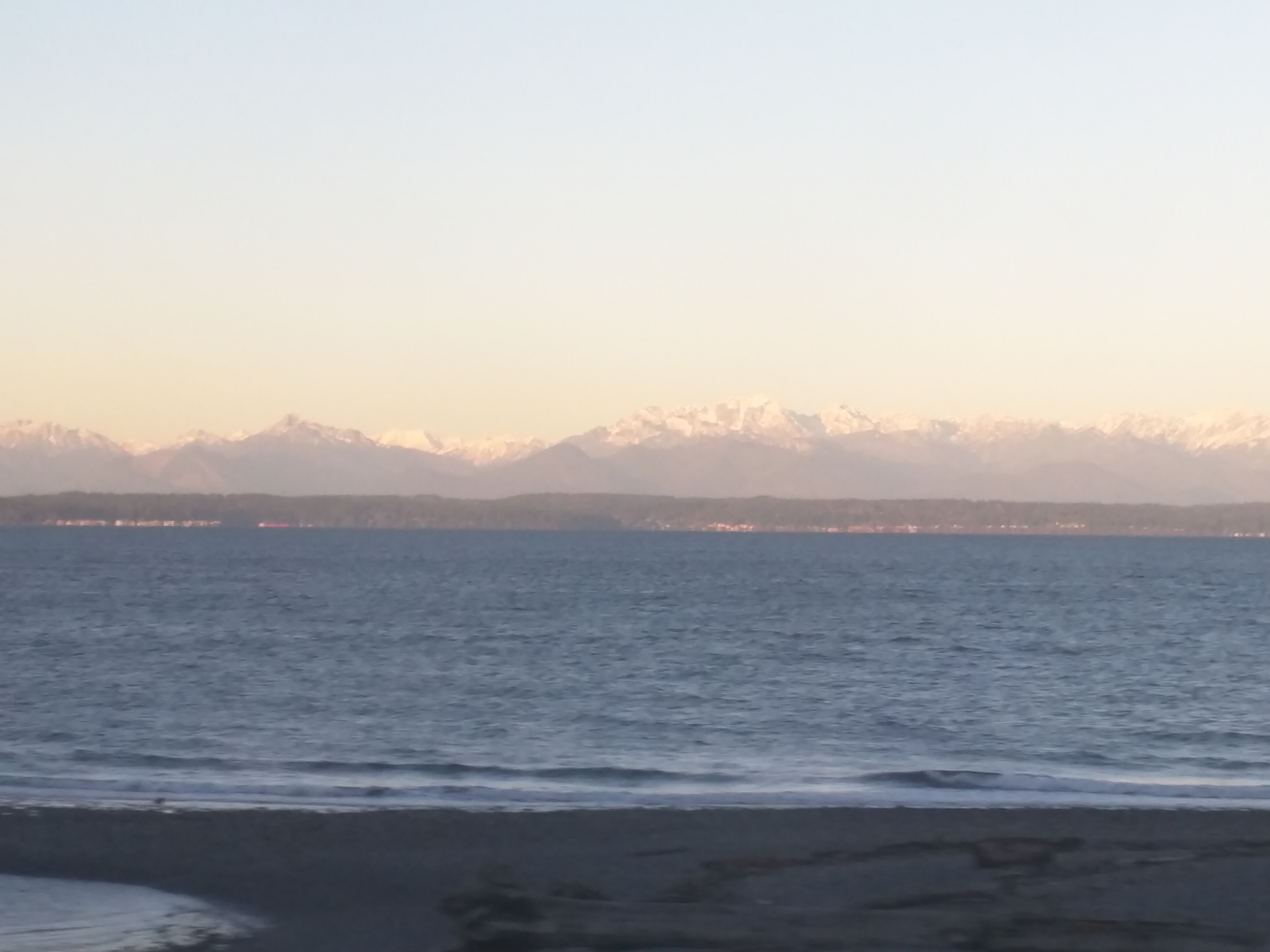February 8, 2021
Save our Salmon: Ride the Train
An edited version of this post has been published by Sierra Club Washington State.
Rail is the only form of ground transportation that does not contribute to massive salmon die-off related to tires. Yet the news from the University of Washington of tire dust toxicity coincides with the state virtually freezing its conventional passenger train service.
The Amtrak Cascades service has been connecting the Vancouver-Seattle-Portland corridor since 1995, giving travelers a green travel option to skip I-5 traffic and airport hassles. Cascades pre-pandemic ridership in 2018 and 2019 was its very best ever, handling over 800,000 annual riders. However, service has been severely curtailed - to only one train a day - in response to the pandemic. Worse yet, due to an equipment shortage, the Washington State Department of Transportation (WSDOT) does not envision a full return of service for up to five years. Our best hope for a sustainable, equitable transportation network is being terribly neglected at this critical moment in the fight against climate change.
Meanwhile our city transit systems and the Washington State Ferry Service have instead been providing as much service as possible despite the fiscal challenges. The fact that we would at the same time effectively forget our passenger trains is a tremendous shame and missed opportunity, especially given recent studies showing that trains are not significant vectors of viral spread. Passenger trains can make a difference in reducing greenhouse gas emissions during the next decade, the critical time to avoid climate change tipping points. WSDOT has had a plan on the books since 2006 to improve and expand service. With hourly trips between Portland and Seattle, the trains would divert three million people annually from the skies and highways to curtail GHG emissions. However, this plan is no longer even present on WSDOT’s website. (Find it on our website).
Time is of the essence. Even an ambitious ultra high speed rail plan will not deliver service for over a decade beyond the critical climate tipping point of 2030. We need to make the most of the sustainable ground transportation alternative we already have: Amtrak Cascades. All Aboard Washington (AAWA) recognizes the budget limitations caused by the pandemic that the Legislature faces. However, existing passenger rail equipment and infrastructure can be used to speed our state’s economic recovery, while furthering our environmental goals, by restarting and enhancing Amtrak Cascades service.
To fight for our salmon and climate today, five Cascades projects must be undertaken:
Restoration of Service to Snohomish, Skagit, and Whatcom Counties
Amtrak Cascades passenger rail service north of Seattle has been discontinued for almost a year due to the Canadian border closure. This has eliminated twice-daily round-trips that also serve Edmonds, Everett, Stanwood, Mount Vernon, and Bellingham. Until the border is re-opened, WSDOT should restore this service on BNSF Railroad right-of-way.
Complete the Cascades Service Plan
Realizing the vision presented by the 2006 Cascades Long Range Plan (LRP) will be critical in our efforts to combat climate change. Doing this will require new train equipment to make up for our current shortage. See the LRP on the AAWA website.
Statewide Network Expansion
If Washington is committed to serving rural and urban communities equitably and sustainably in all regions of the state, more intercity rail service is needed to complement other transportation modes. The Joint Transportation Committee’s 2019 preliminary analysis of train service between Seattle and Spokane via Stampede Pass was encouraging: it confirmed the project’s technical feasibility and a high level of support among community members all across the state. We need our legislature to commit to a bold vision of mobility justice with clean passenger trains serving more of Washington.
Strong and Stable Funding
Rail needs consistent and robust funding to achieve its potential as our accessible, equitable, and climate-friendly transportation backbone. Let’s support creative revenue sources such as land value recapture and county rail districts.
Better Local, Regional, and Federal Partnerships
The Amtrak Cascades service, supported by the states of Oregon and Washington, needs improved cooperation between the states, the province of British Columbia, and stakeholders to be even more successful. Streamlined governance relationships, regional rail commissions, and rail advisory committees can facilitate better cooperation.
Visit www.aawa.us today to learn more about how you can help provide cleaner, salmon friendly transportation options in the Pacific Northwest today!
